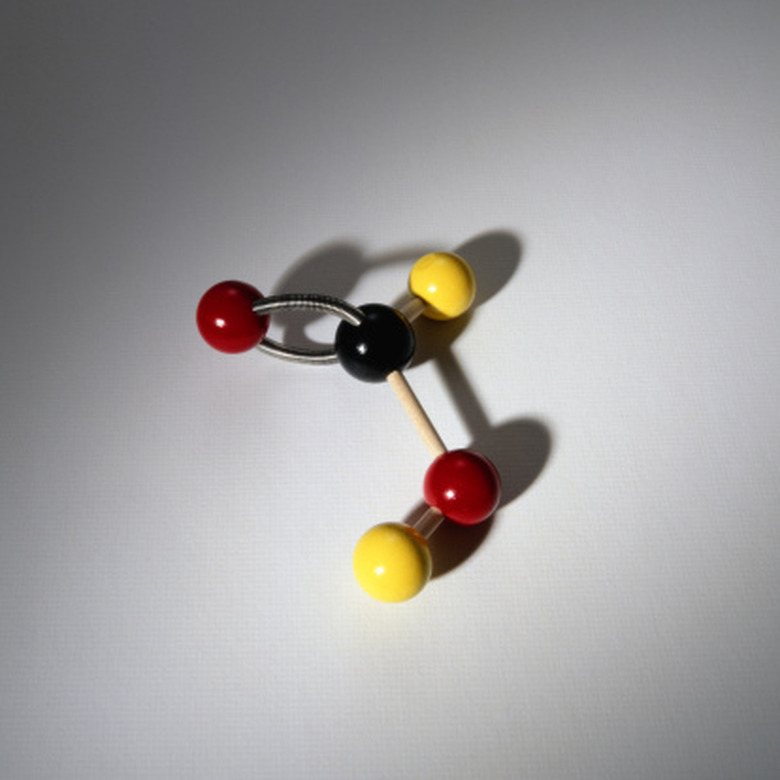How To Find The Polarity Of Compounds
The polarity of a compound depends on how the atoms within the compound are attracted to each other. This attraction can create a difference in electronegativity if one atom or molecule has more "pull" than another and make the molecule polar. In addition, the symmetry of the atoms and molecules in the compound can also determine the polarity. In most cases, it is necessary to draw either Lewis dot diagrams or molecular bond diagrams to determine the polarity of the compound.
Step 1
Draw the Lewis dot diagram according to valence shell configurations.
Step 2
Look at the position of free electrons to determine the molecular shape.
Step 3
Calculate the electronegativity of the molecule by using the periodic table of elements.
Step 4
Consider the strength of the bonds that are present, ie, hydrogen-bonds, ionic bonds, covalent bonds, etc.
Step 5
Find the polarity of the compound by either using your results to draw lines with electronegativity values and sum up all the values or from recognizing a specific symmetry from your previous work.
TL;DR (Too Long; Didn't Read)
The symmetry can easily help you determine polarity without having to calculate electronegativity. For example, all linear molecules are non-polar while bent molecules (water) are highly polar.
Cite This Article
MLA
Nelson, Scott. "How To Find The Polarity Of Compounds" sciencing.com, https://www.sciencing.com/polarity-compounds-8600248/. 24 April 2017.
APA
Nelson, Scott. (2017, April 24). How To Find The Polarity Of Compounds. sciencing.com. Retrieved from https://www.sciencing.com/polarity-compounds-8600248/
Chicago
Nelson, Scott. How To Find The Polarity Of Compounds last modified March 24, 2022. https://www.sciencing.com/polarity-compounds-8600248/
